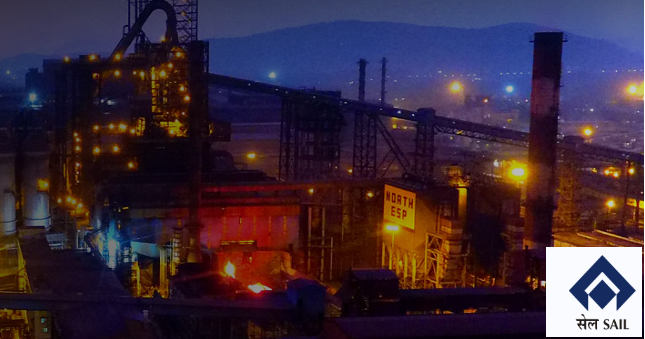
(Photo : www.sail.co.in)
- India's steel industry is experiencing a 13.5% surge in consumption, making it the only large economy to do so amid a global slowdown.
- The Ministry of Steel is ensuring quality production by implementing 51 BIS Standards covering 1,376 Grades of steel.
- The growth of the steel industry has international implications, with China's overcapacity causing a drop in global steel prices.
- The government's role in managing imports and ensuring quality standards is crucial to address the challenges presented by the growth of India's steel industry.
India's steel industry is witnessing a robust growth in consumption, with a double-digit surge of 13.5% in the first half of 2024-25. This makes it the only large economy to show such a trend amid a global slowdown. The growth is expected to continue, with the country projected to need a steel production capacity of 300 million tonnes by 2030 to meet a demand of about 265 million tonnes. This is a significant increase from the current capacity of about 180 million tonnes.
However, this growth comes with challenges. If adequate domestic steel production capacity is not created, India could become a net importer of steel, relying on imports for its infrastructure creation. This is a concern as India's steel imports have significantly increased in the first half of 2024-25 compared to the same period last year.
While the overall volume of steel imports is not significant compared to total consumption in the country, cheaper imports lead to depression of domestic steel prices and affect steel producers, both large and small.
The Role of Quality Standards in Steel Production
The Ministry of Steel has been taking steps to ensure that only quality steel is produced in the country or imported from outside. As many as 51 BIS Standards covering 1,376 Grades of steel have been notified and have been covered by Quality Control Orders by the Ministry of Steel.
This ensures that the steel produced domestically or imported from outside conforms to BIS standards and low-quality steel is neither produced nor imported. These measures are crucial in maintaining the integrity of the domestic steel industry and protecting it from the potential negative impacts of low-quality imports.
International Implications and Historical Lessons
The growth of the steel industry is not just a domestic issue. It has international implications as well. For instance, China's overcapacity in steel production has been a cause for concern for many countries, including India. China's overcapacity has led to a drop in global steel prices, affecting local industries in many countries.
In response, some countries have imposed tariffs on steel imports to protect their domestic industries. These international dynamics highlight the interconnected nature of the global steel industry and the need for coordinated international responses to challenges such as overcapacity.
In the past, monopolies in industries such as steel have had significant impacts on economies. For example, in the United States, companies like U.S. Steel and Standard Oil dominated their respective industries in the late 19th and early 20th centuries. These monopolies led to significant economic and social changes, including the introduction of antitrust laws to prevent such monopolies in the future.









